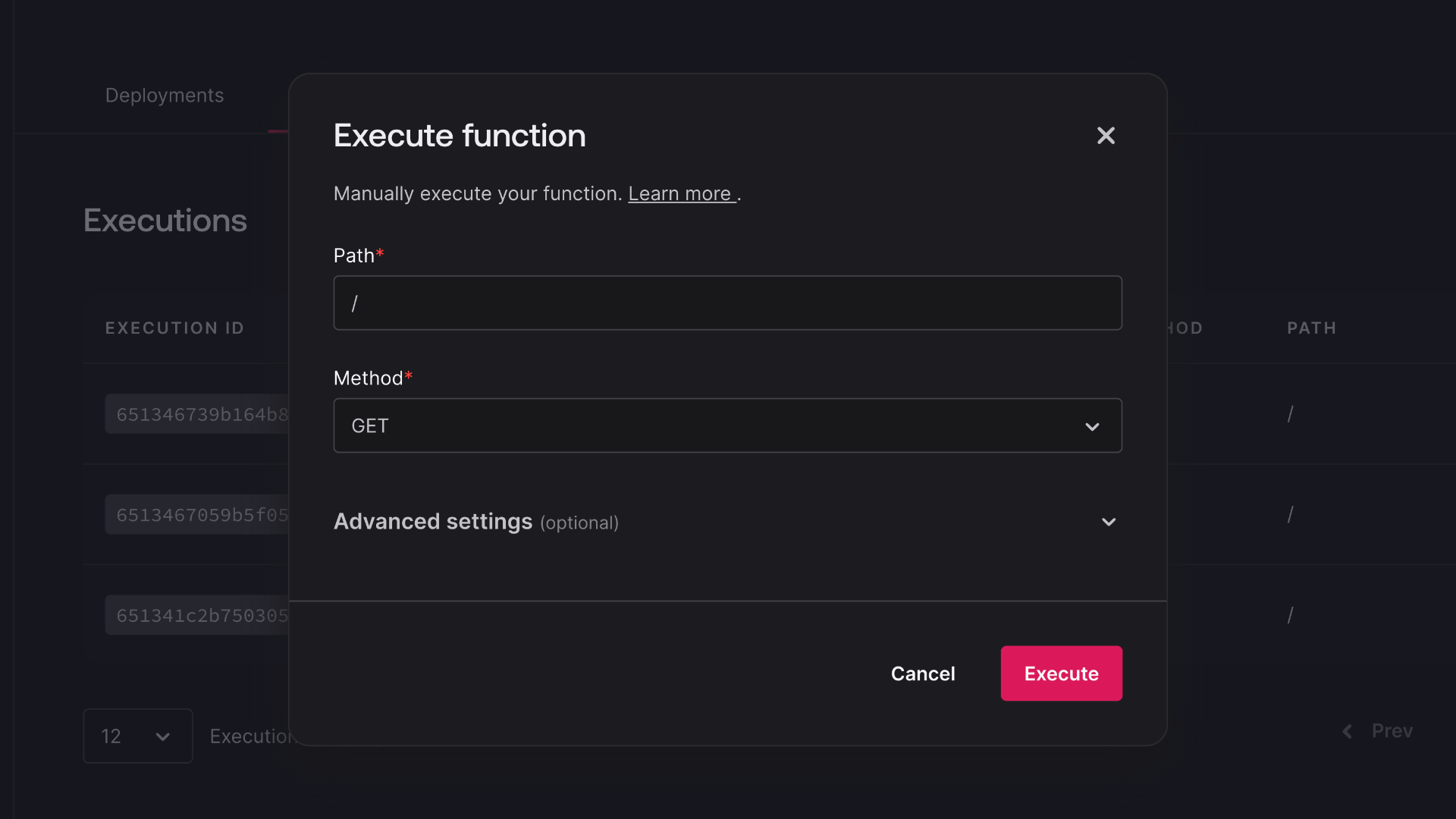Each time an Appwrite Function runs, an execution is created. Each execution has a unique ID. If you enable execution logs in your function, you can find function executions logged in the Executions tab.
Execution table
In your function's Executions tab, you will see a table of your recent executions. Here's the information shown on this table.
| Column | Description |
Execution ID | Unique identifier for each execution |
Status | The current status of the execution |
Created | Timestamp of when the execution was created |
Trigger | The platform event that triggered the execution |
Method | The HTTP method used to create the execution |
Path | The URL path the function execution was called with |
Duration | The time taken for the execution |
Execution status
Each execution can have one of the follow status.
| Status | description |
scheduled | The function execution will trigger later. |
waiting | The execution is queued but has not been picked up for processing. |
processing | The function execution has begun and has not finished. |
completed | The function executed successfully. |
failed | The function execution was not successful. |
Execution details
When you click on an execution, you will be taken to an execution detail screen.


You can find both request and response details. Request and response body are not logged to protect user privacy. This ensures that developers do not see user data by default and no sensitive data is retained.
If you need to log debug data or audit logs, you can use function logging features to explicitly log the information you need.
Log retention
Logs are not retained forever in order to be compliant with GDPR and other data privacy standards. Free plan organizations will retain logs for 24 hours, Pro plan organizations will retain logs for 7 days.
If you need longer log retention, you can log to an Appwrite table. Remember to configure proper permissions and implement Appwrite Functions or other scheduled tasks to expire and clean up logs.